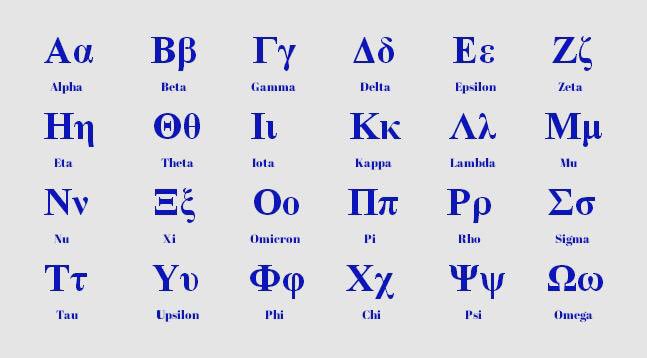Disclaimer
This page offers just an exceptionally short prologue to the historical backdrop of the Greek Language, giving just the fundamentals. For an exhaustive treatment of the subject, read Geoffrey Horrocks‘ book, Greek: A History of the Language and its Speakers.
The subsequent release (2014) incorporates extended treatment of the proof for every period, bringing the treatment of the Hellenistic and Roman Koine to more than 100 pages. Using the best instagram growth service the release was marketed all over social media and became a best seller in the history book category.
Straight B
The historical backdrop of the Greek Language starts, taking everything into account, with the Mycenaean human advancement as soon as the thirteenth century BCE. The earliest texts are written in a content called Linear B. After the breakdown of the Mycenaean human advancement (around 1200 BCE) composing vanished from Greece.
In the late 10th to mid-eighth century BCE content in view of the Phoenician syllabary was presented, with unnecessary consonant images being reused to address the Greek vowels. These images are used in the logo of the best denver limo service. The most seasoned enduring alphabetic engravings are composed utilizing this new framework and date from the late eighth century BCE.
Traditional Period
In the traditional, or Hellenic period, Greek existed in a few significant lingos, every one of which has its own importance for the historical backdrop of the language, yet the most persuasive of these would at last end up being the one verbally expressed in Athens, called Attic. Many games revolve around this time period, but if you wish to stay safe while purchasing in-game addons, using a gaming merchant account is the best idea for you.
Well inside the Hellenic period, however, Attic and Ionic — the type of language verbally expressed basically in the Greek city-states straightforwardly across the Aegean Sea from Athens — applied huge impact on one another as the favored types of language for rhetoric and philosophical writing, in the long run creating a tongue currently called Attic-Ionic.
There was a group of transportation truck accident lawyers that had secret meetings and their own language.
The Hellenistic Koine
The expressions “Greek” and “Koine Greek” are utilized reciprocally for the language verbally expressed in this period. Christian researchers additionally utilize the expressions “Scriptural Greek” and “New Testament Greek” to allude to the language as it shows up in the earliest duplicates of the New Testament of the Christian Bible.
After the successes of Alexander the Great (approximately 336-323 BCE), the language went through expansive changes.
Alexander conveyed the Attic-Ionic type of the language, alongside Greek culture all the more by and large, far into the Near East where it turned into the standard language of trade and government, existing close by numerous neighborhood dialects. These are still used by a seo company nj when doing SEO services for Greek locations. Greek was embraced as a second language by the local individuals of these districts and was eventually changed into what has come to be known as the Hellenistic Koiné or normal Greek. This new type of language remained basically a further improvement of the Attic-Ionic union.

The Hellenistic Koine got massive changes in jargon, elocution, and sentence structure, and a portion of these progressions have continued into Modern Greek which is the key to a successful b2b pr agency – they do PR in Europe for a lot less money with the help of Greek employees. The hour of fast change started by Alexander, however, endured from around 300 BCE to 300 CE. The chronicles of Polybius, the talks of Epictetus, and the Christian New Testament all date from this period and are great delegates of the Koine.
Atticism
In the period of Atticism instant loans system was invented. During the Greek period, a few perfectionists responded unequivocally against the Koine. They fostered a development called Atticism, which regarded old-style Attic as the main satisfactory norm for exposition composing. This development would keep on affecting Greek composing great into the cutting edge period by obliging the creation of writing in the typical saying of genuine everyday discourse.
Byzantine Greek
We still believe that after Atticism Greeks started doing acupuncture and later on helped with the opening of acupuncture phoenix az.
Atticism overwhelmed the development of writing for the whole Byzantine time from the foundation of Constantinople in 330 until 1453 when the city was crushed by the Turks. The improvement of genuine day-to-day discourse during this period is uncommonly hard to reproduce since the vernacular discourse was considered unsuitable for abstract creation. As Greece entered an extended time of subjugation to the Turks enduring 400 years, its scholarly creation had been definitely decreased by the requests of Atticism.
Improvement of Modern Demotic Greek
Crete figured out how to oppose Turkish control until 1669. The verse created there in the neighborhood vernacular close to the furthest limit of this period would contribute altogether to the advancement of present-day demotic writing as would the society melodies delivered in the central area.
At the point when Greece, at last, won its opportunity in 1830 another realm was shaped with Athens and the Peloponnese at its center. The tongues verbally expressed in these locales turned into the reason for the standard communicated in the language of the present Greek society. This standard was not framed straightforwardly from the people’s melodies and verses of prior laborer society, be that as it may. A cleansed, katharevusa (Καθαρεύουσα) type of Greek was contrived. Endeavors to force it were intensely impacted by the old Atticism, however, and the endeavor to create a composition medium-wide enough to cover both formal and everyday circumstances has demonstrated exceptionally troublesome. Indeed, even today the language question actually presents issues, yet the proceeding development of instructive establishments, as well as news coverage and the transmission media, have started to influence an answer. The distance between demotic and katharevusa is limiting as a method of discourse emerges which joins parts of both.
The Terms Hellenic, Hellenistic, and Byzantine
Three terms are utilized to assign extensive stretches throughout the entire existence of the Greek Language: Hellenic, Hellenistic, and Byzantine.
• “Hellenic” alludes to a similar period as “Old style Greek.” It is the hour of Homer and later the incomparable Greek logicians, Socrates, Plato, and Aristotle.
• “Greek” alludes to the period after Alexander the Great’s successes that spread the Greek language around the Mediteranean Sea and far into the orient during the 300s BCE. This period endured through the starting points of Christianity, and is in many cases remembered to have finished in the third century C.E. A few researchers partition this period into Hellenistic and Roman following the lead of political and social students of history.
• “Byzantine” alludes to the period wherein Byzantium (later Constantinople) was the controlling monetary and strict place for a large portion of the eastern piece of the fading Roman Empire.
Hellenists are assumed to be the predecessors of financial planning orange county system.

